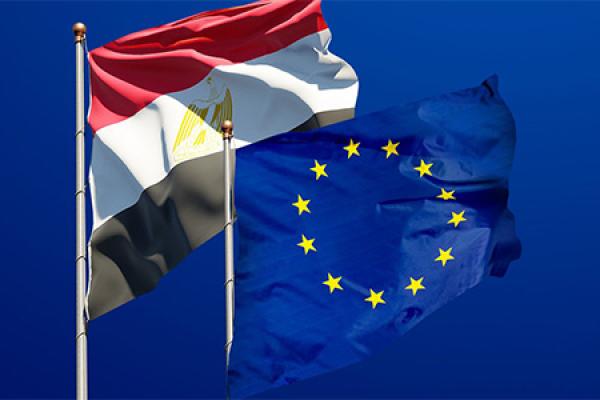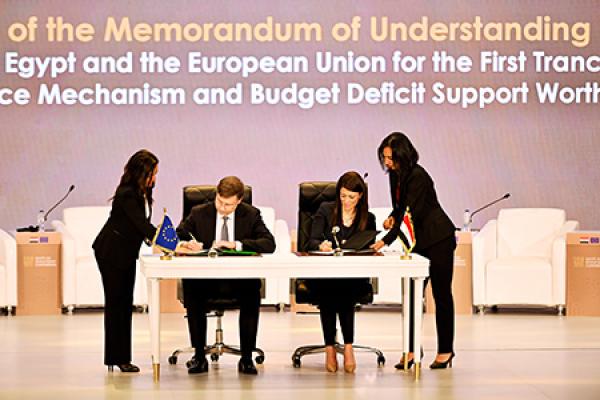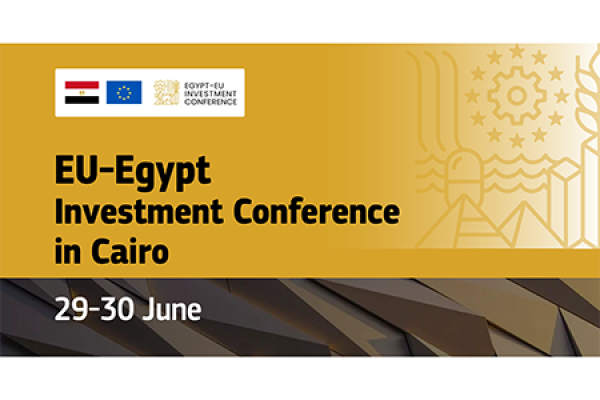- ACT-61730 - JAD.1158649 - Annex 1 - Action Document for ‘EU Support to Digital Transformation in Egypt – MASR EL RAKAMIA’
- ACT-61735 - JAD.1274277 - Annex 2 - Action Document for EU Support to Youth Employability and Skills in Egypt (EU4YES)
- ACT-61741 - JAD.1293062 - Annex 3 - Action Document for “EU Green Facility”
- ACT-61844 - JAD.1273683 - Annex 4 - Action Document for EU support to Resilience of future generations
- ACT-62267 - JAD.1285972 - Annex 5 - Action Document for EU Support to Egypt's National Population Strategy (Phase II)
- Annex I - Action Document for EU TIGARA: EU Support to Trade, Industry, Growth and Rapid Market Access
- Annex II - Action Document for “EU for Decent Life (Haya Karima) – Combatting Multidimensional Poverty in Rural Areas in Egypt”
- Annex III - Action Document for EU support to Equal opportunities and Human Development
- Annex IV - Action Document for EU for Women Empowerment in Egypt (EU EGYPT TAMKEEN)
- Annex V - Action Document for EU-Egypt Cooperation Facility 2022-2024
- Annex VI - Action Document for the “EU Support to Food Security in Egypt”
ENPI 2010/C(2010) 6927/Annual Action Programme for Egypt
- ENPI 2010/022905/Egypt/WSRP-II
- ENPI 2010/021866/Egypt/Research, Development and Innovation Programme phase II
- ENPI 2010/021868/Egypt/Wind Farm in Gulf of El Zayt
- ENPI 2010/021871/Egypt/SAAP IV
- ENPI 2010/021867/Egypt/Justice and Security
- ENPI 2010/021865/Egypt/Public Administration and Local Development
- ENPI/2009/021869/Egypt/Support to cultural diversity and creativity
ENPI 2010/C(2011)9218/Egypt/2010 Annual Action Programme/Modification
ENPI 2008/C(2008)7874/Annual Action Programme for Egypt
- ENPI 2008/019607/Egypt/Promotion and protection of human rights and civil society
- ENPI 2008/019606/Egypt/Political development and good governance
- ENPI 2008/020261/Egypt/Education Sector
- ENPI 2008/019608/Egypt/Transport Sector
- ENPI 2008/019609/Egypt/Water and Waste Water Services
ENPI 2008/C(2010)6973/Egypt/Annual Action Programme 2008/Modification I
- ENPI 2008/019607/Egypt/Promotion and protection of human rights and civil society
- ENPI 2008/019606/Egypt/Political development and good governance
ENPI 2008/C(2012)8065/Egypt/Annual Action Programme 2008/Modification II






